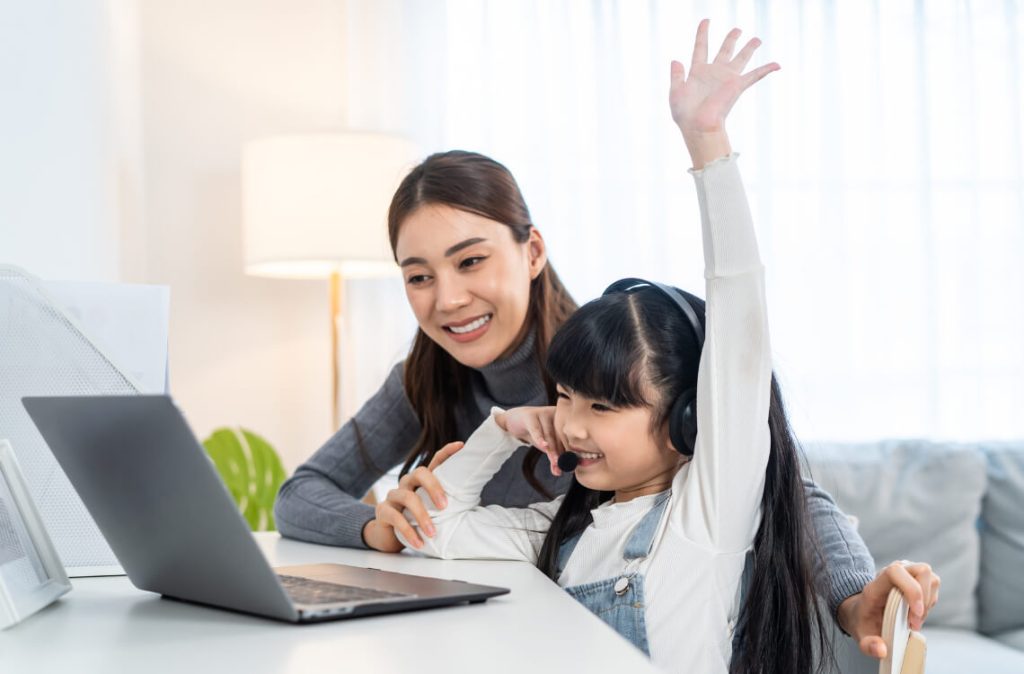As parents, we always strive to provide the best for our children, even in terms of education. We want children to be as comfortable and quick to pick up on what they are learning as soon as possible. Some parents enrol their children in extra classes to help them learn more effectively.
However, as most extra classes are now held online, children may struggle to understand the subjects being taught to them. When learning online, children need to be adaptable, while parents can monitor their progress in all subjects, including foreign languages.
But how can you monitor the progress that is both child-oriented and valuable to parents? Novakid CEO Max Azarov and Studies Director Amy Krolevetskaya shared their perspectives.
Turn Progress Monitoring into Shared Learning and Quality Time with Your Child
Having a positive attitude toward learning is one of the components of lifelong learning, a concept that can be viewed and applied from a variety of perspectives, including professional, personal, and family.
‘Study with your child! The process of learning together helps rebuild the parent-child role model, shifting from the traditional way of “I monitor your academic progress and test you“ to “We learn from each other and explore the world together“‘, said Max Azarov, CEO, and founder for the Novakid ESL platform and father of 3 children.”
With this approach, control of progress is replaced by interest and curiosity in the child’s success, as well as direct involvement in the process. Parents can also learn a lot from their children.
‘When parents and children combine their skills, they can work as a team to improve, learn, and have fun. Co-learning, for example, occurs when parents and their children play digital games. Children are instinctively better compared to their parents. Parents, on the other hand, maybe more reflective and can sometimes spot troubles or dangers, such as risky things online. They must accept that each of them has advantages in certain areas’, said Amy Krolevetskaya, Studies Director at Novakid.
Moreover, learning encompasses more than just knowledge; it also includes new learning approaches and formats. When it comes to foreign language learning, parents’ school curricula 20-30 years ago were very different from the modern formats available to children today—digital platforms, game-based ESL programmes, and speech-focused methods. The other side of co-learning is learning to re-learn.
Create a Safe Space between You and the Kids: Be Yourself while Focusing on Their Feelings and Experiences
Staying close to your child during a learning session makes them feel more at ease. Trust and continuous communication are essential components of the learning process. Without these two basic things, there is a risk of misunderstandings and communication barriers between children and parents.
‘Commonly asked questions of “What did you learn in school today?” can be rather confusing, because the learning process is more important to the child than the outcome. Instead, ask them if they are interested in the lesson, if they like the topic or if they want to learn more about it in their spare time’, said Max Azarov.
It is very important to be able to ask questions, be creative, and engage in children’s emotions and experiences. Learning interest is not measured by the number of subjects or lessons learned, but rather by a child’s passion and inquisitive mind.
‘Most parents keep asking the questions they want to know, but the idea is to learn a little bit about a child’s life from a different perspective. It’s not about being an interrogator, but you need to be with the kids to make it easier for them to approach you. Creating space for a relationship between you and the children is a good strategy. Find out what your child enjoys and try to understand and ‘get into’ their world. Find an activity that interests both of you, then do it, practice it, and talk about it’, said Amy Krolevetskaya.
Strive to Be a Third Party in the Digital Learning Model: Participate in the Process and Be Proactive
The same is true for online learning, also known as e-learning, which requires a proactive attitude from parents on an ongoing basis. Parents’ roles should not be limited to ‘external observation’ and ‘results evaluation’.
To enable parents to actively participate in the English language learning process, the Novakid ESL platform has created a dedicated account for parents. It is a communication space for teachers, schools, students, and parents, as well as an easy navigation system for viewing schedules, course content, bonuses, and subscriptions.
‘Teachers’ comments on the child’s development in each class can be seen in personal accounts, and there is also a chat room with Novakid school support. All suggestions from students’ parents will be taken into account. We need feedback and parental involvement in this online learning process’, commented Max Azarov.
More information can be found in the video below:
In the ‘Achievements’ section, you can view your child’s progress in the registered course programme, learn about the next learning topic, and even find the homework given. The ‘Library’ section contains colouring books, videos, and extra materials for learning English. Novakid recommends doing homework while playing educational games with your child. Share the learning experience to make it more enjoyable, entertaining, and effective for both! For more information, visit Novakid’s official website: www.novakid.my.
This article is provided by the Novakid ESL platform.
For more insightful stories and fun recipes, stay tuned to Motherhood Story!
